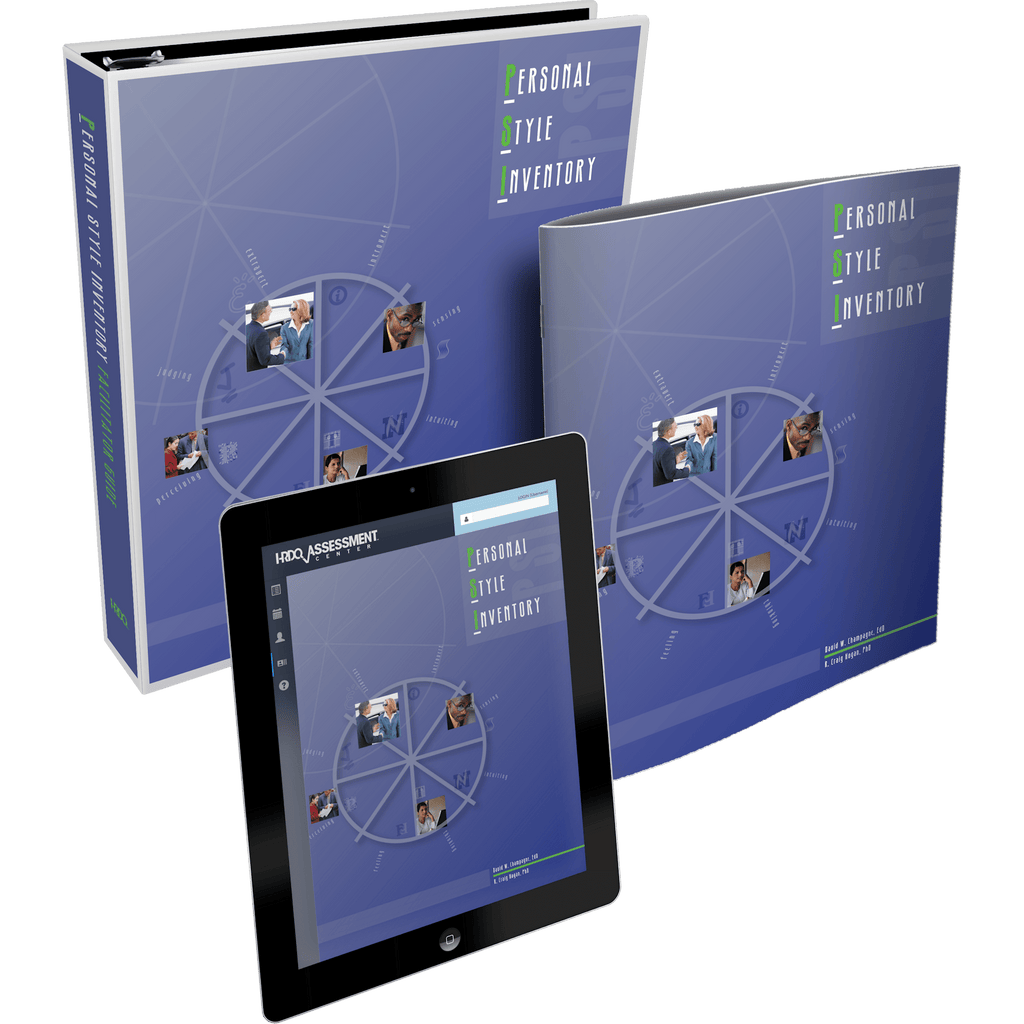Share
ABCD Personality Types: The 4 Traits You Should Know
Bradford R. GlaserYes, your personality type affects how you interact with people ever day, but did you know it can even impact your general health? The effects of your personality style are far reaching. When you look into the ABCD personality types, you get a clear framework to understand how different people think, feel, and act. It also gives you helpful strategies to better support yourself and those around you.
I will break down the each ABCD personality type, showing their main traits, strengths, and possible downsides.
So, how can this knowledge help you? Let's talk about it for a bit. You might be surprised at how helpful it is!

- Identify your unique style quickly
- Improve communication with coworkers
- Improve team collaboration effortlessly
Table of Contents
What Are ABCD Personality Types?
The ABCD personality types each bring traits to help you see your own behavior and how you use the world – I'll break it down for you.
Type A personalities are all about ambition and competitiveness. They stay driven and focused on their goals, always pushing themselves to succeed! But this drive sometimes makes them impatient and stressed. Imagine a Type A person in a high-stakes business meeting. They're super focused with a serious look on their face. Their mission for perfection can sometimes come off as aggressive because they hate wasting any time.
Type B personalities are your relaxing friends. They're easy-going and patient, just going with the flow. This relaxed attitude helps them handle stress better and be more creative than Type A people. Picture that friend who keeps cool under pressure – they come up with new ideas while sipping a cup of coffee. They do their best in social settings, mingling and communicating without any trouble.

Type C people are the analytical thinkers. They love details and logic, making sure that everything is in its right place. Sometimes introverted, they like order and accuracy but could struggle with emotional stress. Think of someone planning every part of a project, making lists, and double-checking everything. They start with getting things right, leaving no room for errors, but this can sometimes make them overthink things.
Type D personalities are a bit more complicated. They like to be cautious and worried but are also very sensitive and empathetic. They're always aware of their own and others' emotions. Imagine someone who prefers quiet spaces and loves deep, meaningful conversations over small talk. They could worry about uncertainties, but their sensitivity makes them wonderful listeners.
Cardiologists Meyer Friedman and Ray Rosenman first identified these types in the 1950s. Over time, descriptions for Types C and D were added. These distinctions come from behaviors, attitudes, and stress responses – all noted by psychologists and researchers.
It's a good idea to remember that you don't have to fit well into one type. People show traits from different types, which makes personalities really different.
Let's talk about the traits that define Type A people and see if you relate to being driven.
Type A Traits: Are You Driven?
Type A personalities really stand out because of their go-getter attitude and intense drive. They're very organized and quite competitive, doing well in work environments. Ever found yourself juggling multiple tasks to get everything wrapped up ahead of schedule? That's classic Type A behavior! You're likely the one who sometimes says, "I'll handle it," as a favorite phrase instead of just once in a while.
Imagine you're in a meeting, and one person has already mapped out a complete plan with a timeline. That's your Type A coworker, always ready to lead with careful planning and foresight. You'll sometimes see them in leadership roles because they're skilled at planning and motivating the team. But honestly, their sense of urgency can sometimes feel a bit intense, right?
Type A people are natural-born competitors. Think of someone who signs up for every office challenge and also wins every time. This determination sometimes leads to big professional successes, which is great. But, it comes with a downside: stress is always lurking. They set the bar really high for themselves and everyone around them.

If you've watched someone multitask effortlessly, that's another hallmark of a Type A personality. Handling emails, meetings, and more all at once, they make it look easy. Their time management skills are something to admire. But this non-stop juggling means they can burn out faster than others. They might get impatient when things don't move at their pace. It's not uncommon for them to get frustrated if others can't keep up.
They set ambitious goals one minute, and then they dive headfirst to reach them the next. This goal-oriented mindset makes Type A people a big asset to any organization. They bring energy and focus that can really help with a team's performance. But there's a downside: this same drive can cause impatience and even aggressiveness. Having drive is helpful, but balancing it with patience is also a good idea.
Type A personalities are also big risk-takers. They're willing to step outside their comfort zones to find success. This can cause interesting accomplishments, but it's also worth noting that it can cause stress and burnout. Do you push yourself past limits? If so, you could see yourself in this description.
Now, let's take a look at the traits of Type B people and see if you find them more laid-back. This will help you gain insight into different personality types!
Type B Traits: Are You Laid-Back?
Type B personalities are their best in social and laid-back settings. You can recognize them by their easy-going attitude and knack for creating a friendly atmosphere. Think of a colleague who always has time for a talk or lunch – even when work gets busy! That's a classic Type B.
You'll see Type Bs do well when patience and teamwork are in demand. They bring a refreshing change to tense project meetings, which can help everyone stay cool. Their ease under pressure makes them wonderful at handling stress – a stark contrast to the high-strung Type A personalities. They don't have a non-stop drive to meet deadlines, which can be helpful and hard. While they bring creativity and fresh ideas, their slower pace can sometimes cause putting things off and missed deadlines.
Think about if you or someone you know sometimes takes a leisurely approach to tasks. Maybe you're the one who tells others to "take a breath and think it through" during a crisis. That's a classic Type B trait. They grow in team settings where their friendly nature creates a positive work environment. Since they're not quick to anger, they sometimes act as mediators in conflicts, and it prevents small disputes from escalating.

You could find that putting a Type B in a high-pressure, deadline-driven situation shows some challenges. Their relaxed approach could frustrate people who need prompt action and complete organization. Imagine them in an environment with tight deadlines – not impossible, but out of their comfort zone. In creative roles or brainstorming sessions, though, Type Bs can be really helpful. Their ability to think outside the box sometimes leads to breakthroughs others might miss.
Think about your behavior. Do you pride yourself on not sweating the small things and enjoy collaborating with others? You could resonate with some Type B traits. Your easy-going nature likely helps calm tense situations, which makes you great at handling social processes.
Type B people are visionary. They turn ideas into reality with a calm demeanor. But this calmness can be seen as a lack of urgency. That leads to putting things off and disorganization. When a deadline looms, you should think about how your relaxed approach could be a strength – and a hurdle.
Let's move on to Type C traits and see if you look for control in different parts of your life.
Type C Traits: Do You Seek Control?
A Type C personality is known for being detail-oriented, analytical, and always wanting to control their environment. You probably know someone like this (or maybe you see some of these traits in yourself).
They grow in roles where accuracy and careful planning are important. Imagine an accountant going over financial data meticulously to make sure everything is correct – that's a classic Type C behavior, by the way!
These people are very conscientious. They take their responsibilities really seriously, and you can count on them to deliver great work. They're the ones in the office who always double-check their reports before submitting them. However, this dedication to detail can cause overthinking. Type C people sometimes deal with stress because they worry about all the little things. It feels like they have a mental checklist that never ends – this can be exhausting and sometimes a bit intense.
They're also known for being reserved and introverted. If a Type C person turns down an invite to a large social gathering, it's not personal – they just find small groups or solo activities more comfortable. Even with their calm appearance, there's sometimes internal stress. They may not show it, but they feel it! This can affect their mood and general health.

Being considerate and sensitive to others' needs makes them wonderful team players. They stay away from conflict whenever possible, going for harmony in their relationships. This sometimes results in them putting others' needs above their own. If you know someone who always says, "I'm fine," even when they're not, that could be a Type C trait in action. This selflessness is admirable but can sometimes cause burnout.
Their love for careful planning is a strength and a potential source of stress. They like to have everything figured out in advance, leaving little room for spontaneity. This preparedness is extremely helpful in jobs that need high accuracy, like engineering or project management. But, it can also cause feeling overwhelmed when things don't go as planned – flexibility doesn't come easy to them.
Type C people sometimes trust logic and rational thinking. When making choices, they like to base them on facts, not emotions. However, this logical approach can sometimes make them seem detached or overly cautious. They prioritize making the right choice over making a quick one.
Their perfectionistic tendencies drive them to work for excellence, but it can also mean they're never quite satisfied with their work. This search for perfection may cause missed deadlines or unnecessary stress – it's a double-edged sword. They produce excellent work, but at what cost to their health? Honestly, this balance will help them achieve long-term success and happiness.
Conflict avoidance is another hallmark of the Type C personality. They like to keep things stable instead of having to face disagreements. We all know someone who avoids office politics like the plague. That's a Type C behavior directed at keeping things predictable and stress-free. This desire for peace can sometimes limit their ability to help with important issues directly.
The goal is to strike a balance between their strengths and being mindful of the challenges. This awareness can help with personal and professional relationships.
Type D Traits: Are You Cautious and Reserved?
Type D personality people sometimes show caution, keep to themselves, and like to worry quite a bit. Imagine someone who always double-checks before saying or doing anything. You could see them as overly cautious, but in places where taking risks isn't smart, this careful nature can really help. Just to give you an example, someone with a Type D personality could do really well in jobs needing attention to detail and careful planning.
You'll see people with Type D personalities sometimes feel strong negative emotions like worry, irritability, and gloom. Think of someone who always feels a bit worried, even about things that might not make sense. At the same time, they could keep these feelings to themselves because they fear rejection or being judged. This can make them feel more stressed and sometimes cause them to withdraw socially.
Another thing about Type D people is that they like to keep to themselves. They could come across as unapproachable, which can make it hard for them to make friends. I remember a colleague who rarely joined in on office conversations and stayed focused on their work. While their dedication was great, it sometimes put up a wall between them and the rest of us.

Caution can actually be helpful in situations where you don't want to take risks. Just to give you an example, financial consultants could find this trait helpful when advising clients to invest, but if you're too cautious, you could miss some strong chances.
Type D people sometimes deal with chronic stress. They worry quite a bit and hold back their emotions, which can hurt their physical and mental health. I've sometimes thought about how stress management techniques could support them. Doing things like practicing mindfulness or staying active can lower stress levels.
You can work on your weaknesses and use your strengths by becoming more aware of yourself. Knowing your traits is the first step to building confidence and learning how to express your emotions better. Also, working on your social skills can help you stay away from feeling isolated. I always tell people that good interpersonal skills can make personal and work relationships better.
Knowing where a Type D personality fits can give you useful insights into how you understand others. Are you the cautious type, preferring schedule and stability? Or do you know someone who fits this description? It could help you get along better with people around you.
Why Understand Your Personality Type?
Understanding the ABCD personality types and what your type is helps you have better personal and work relationships. This recognition of personality types can really help with teamwork by making interactions smoother. Think about how you've reacted under stress or worked with others – has your awareness changed? Talking about personality traits can be quite eye-opening!
Recognizing these traits also helps you build empathy. When you see why someone could be more reserved or why others push themselves hard, you start to like the different ways people handle things. It affects how you handle work duties and personal relationships. Think about how this awareness could bridge gaps to reduce conflicts. Think about the possible results on your interactions.

Knowing others' types can cause more balanced interactions at work and in your personal life. Being aware of ABCD personality traits lets you change your communication style to be more helpful and considerate. Think about how this could change your strategy to teamwork or conflict resolution. The outcomes are pretty varied, which can help with productivity and general health.
For people who are excited to study personality and behavior styles more, check out the Personal Style Inventory self-assessment and workshop from HRDQ. This research-based tool gives you a structured way to learn your personality better.
It also helps with communication, productivity, and relationships by cutting down on conflicts and miscommunications. It's a chance to build a more supportive professional environment and a more empathetic personal life!
You can also check out our other personality styles training resources to see the different aspects of work and life that your personality influences.





















































